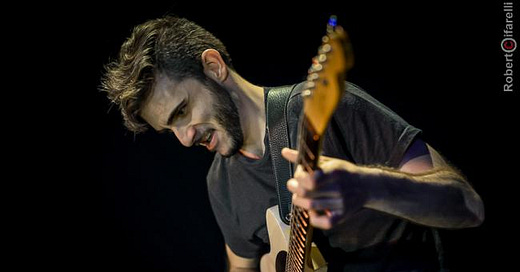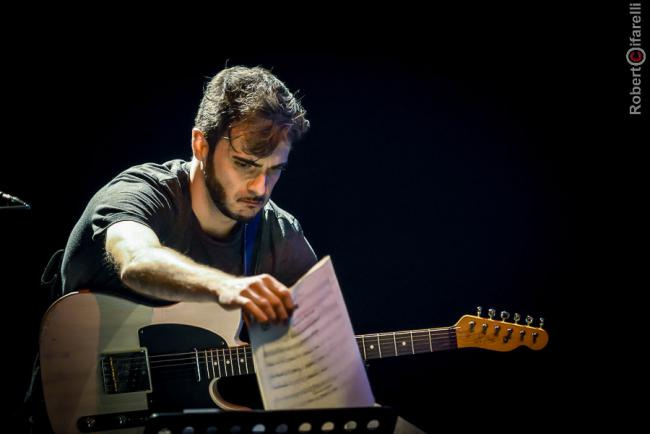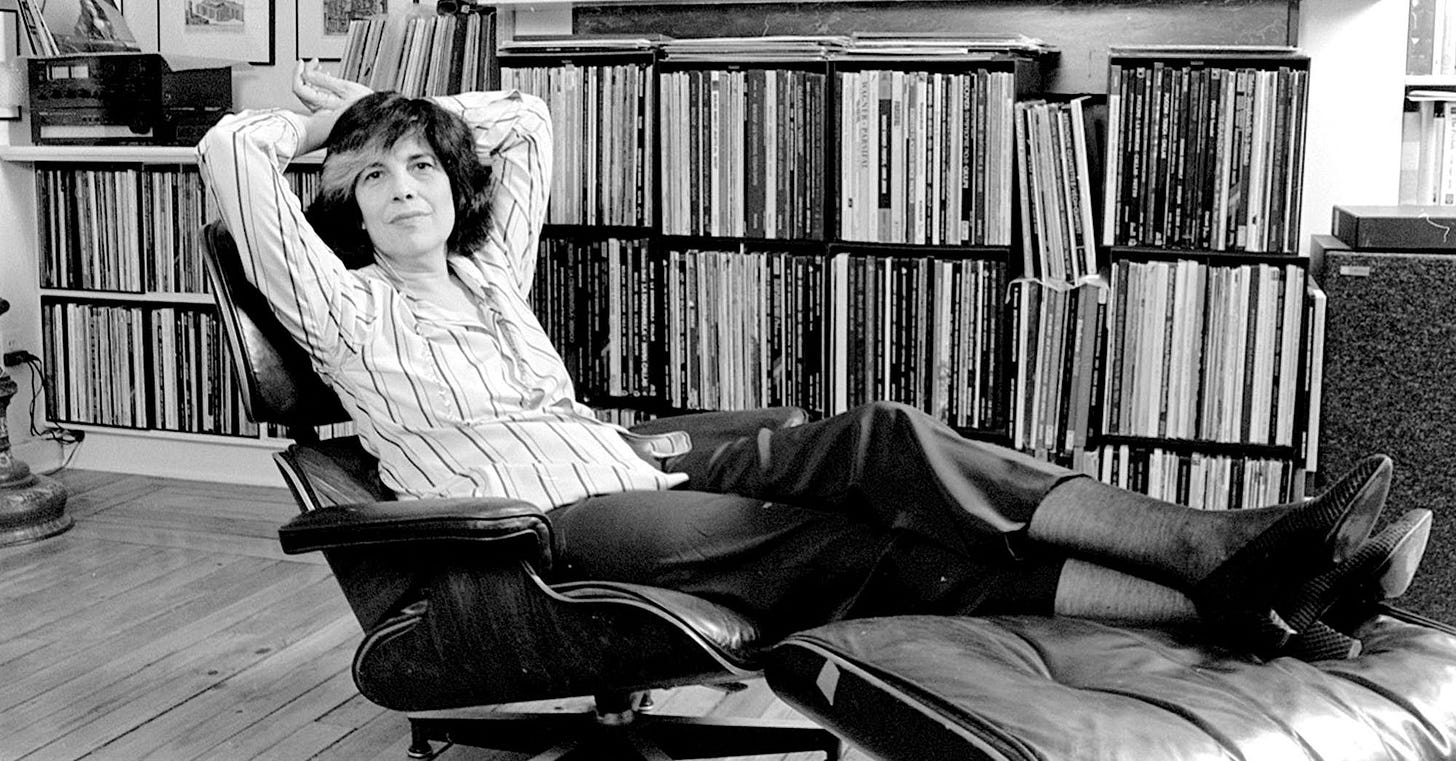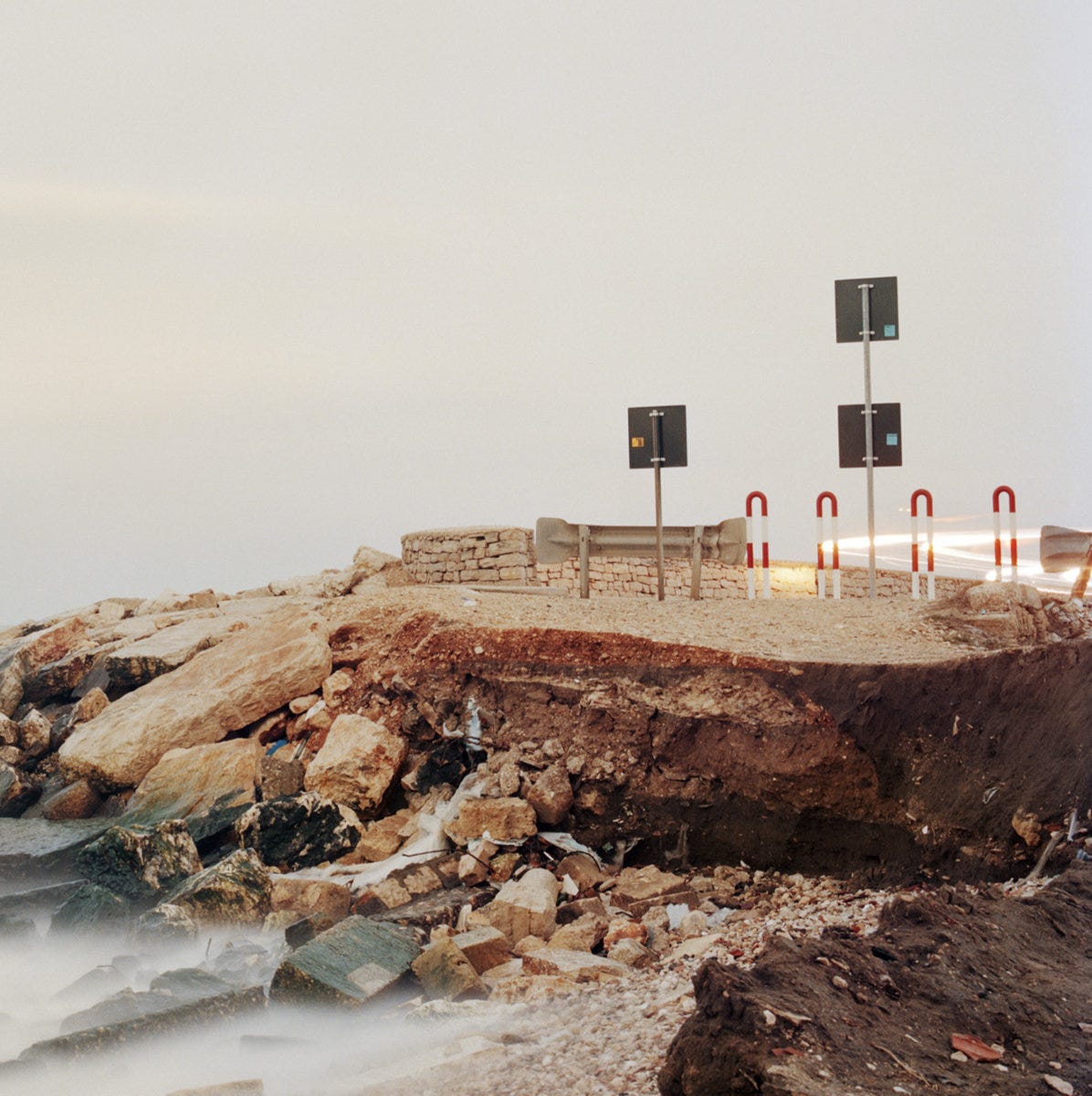Neuguitars 2024 #34 Metaphor and Style in the World of Contemporary Guitar and Sound Art: “Sacred Habits” by Luca Perciballi
Kohlhass, 2024
A classic, wrote Italo Calvino, has never finished saying what it has to say. And metaphor is one of the 'classic' elements of our way of communicating. The Encyclopedia Britannica brings us back to this definition of 'metaphor': “a figure of speech that implies a comparison between two unlike entities, as distinguished from simile, an explicit comparison signalled by the words like or as.” Immediately after, it adds, for greater precision, like: “The distinction is not simple. A metaphor makes a qualitative leap from a reasonable, perhaps prosaic, comparison to an identification or fusion of two objects, the intention being to create one new entity that partakes of the characteristics of both. Many critics regard the making of metaphors as a system of thought antedating or bypassing logic.”
Luca Perciballi, on his website, defines himself as a guitarist, composer and electroacoustic musician. His musical path is a perfect expression of what is happening in the world of experimental music in these times, Luca in fact manages to effectively combine both the activity of improviser and composer, moving with ease between these two worlds, which, once, were considered rigidly separated from each other. His work is focused on instrumental practice and on a compositional approach (traditional and electroacoustic) that starts from a performative gesture. Perciballi pursues a research where the musical material is dominated by sound as an organoleptic agent and related to a dense network of references and memories. His sound has been distinguished, for some time now, by an undeniable personal imprint, to be characterized by a sign characterized by an elaborate game built on semiological metaphors.
In her essay “On Style,” Susan Sontag wrote: “To speak of style is one way of speaking about the totality of art. Like all discourse about totalities, talk of a style must rely on metaphors. And metaphors mislead.”
She was right. Metaphors are deceptive. What interests me most in Luca Perciballi’s music is the sensation of sensing a sort of purification from metaphor. It’s true, metaphor is essential for thought, but, Sontag writes, one should use it without believing in it too much, knowing that it is a necessary fiction, but one that should not be exaggerated. I formally detest those who use style, their own style, as something decorative, an accessory. I appreciate those who do not hide a personal, extremely complex style, with a deliberately ambiguous and light attitude.
Luca Perciballi recently released a new album: “Sacred Habits,” released by the independent label Kohlhass.
With his guitar and his minimal sounds, which betray sacred habits, Perciballi seems to suggest that style is a question of more or less (i.e. quantity), of thick and thin (i.e. density). “Sacred Habits” shows us how music, experienced as music, is an experience, not a declaration or the answer to a question. Music, any music, is not about something, but is something. “Sacred Habits” induces contemplation, a dynamic contemplation. This album contains information of all kinds, shows us new attitudes and implies the metaphor of music as a kind of nourishment. But, at the same time, it is also a vibrant and exemplary object that returns us to the world, more open and enriched, to lead us to listen or to understand something singular, not to judge or generalize.
Perciballi has long belonged to that small group of guitarists who love to transform the sound of their instrument, to the point of completely forgetting not only its sonic origins, but above all its musical and cultural references. His attention to the sense of space contributes to the creation of a musical vision that leads to an augmented sound art, a sort of Ryoji Ikeda on steroids. In “Sacred Habits” he shows us how style in music coincides with the principle of decision, the signature of an artist’s will. And just as human will is capable of an infinite number of positions, so for music there is an infinite number of possible styles, even within the same musician.
I was saying that on his website Luca Perciballi defines himself as a guitarist, composer and sound designer, it is a very intelligent and very real definition: his way of playing seems to me to be an attempt to bring improvisation, composition, every dimension of the sound of the electric guitar into a more concentrated state and, at the same time, less limited and constrained. Perciballi seems to seize every opportunity, both in the traditional and in the innovative sense, to search for, to find an open and never definitive modification of what is already known. His music is continually changing and searching for something new, it is never fixed and is too elusive for precise analysis and description. I find distressing what seems to be the usual practice of writings on academic music, which treat contemporary, experimental music as a sort of special musical activity practically segregated and I refuse to consider an experimental musician as a specialist in new music, almost as if music, to be normal and not specialized, must be configured as a sort of sound archaeology. I am sincerely grateful to him for this mental and musical openness. Thanks again, Luca Perciballi.
Links







